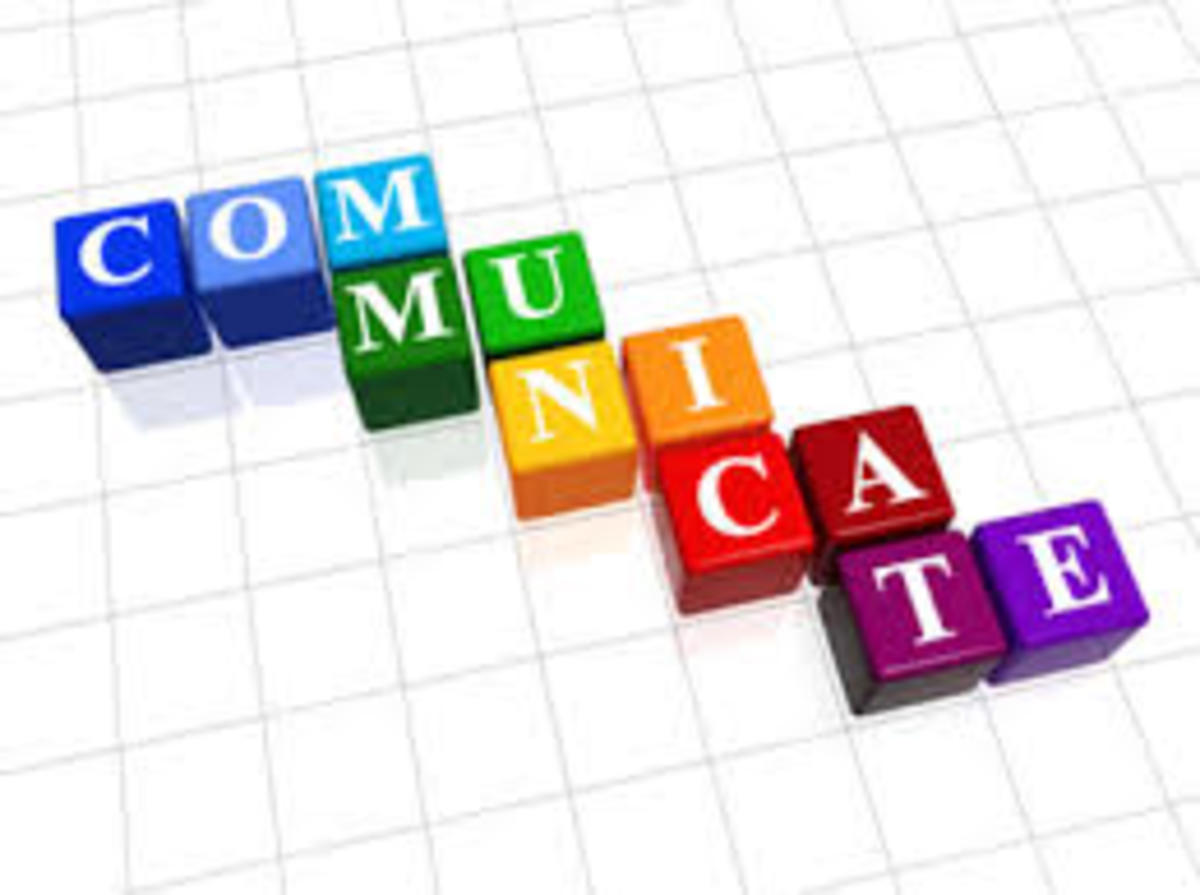Relationship Addiction; Seeking Value From Others

Some people tend to go through life with the belief that their value is derived from their relationships and through approval from others. All the while, they tend to lack value and approval of themselves, often keeping a cycle going that requires seeking out such acceptance and attention from others. This lack of value in their self tends to create habits that actually keep negative or even harmful cycles going in their lives and, especially, in their interactions with others.
This may also lead to much anxiety for them, as they constantly feed off of their interactions with others. They never seem to feel complete or filled up. The reason being is because no matter what good things anyone does for them or good things others say about them, they still doubt their value and need constant reassurance. This will often tend to wear others around them down causing distance or frustration in the relationships.
Every one needs some reassurance and interactions from others in their lives. However, people who base their total worth and decisions based on the approval and attention of others can sometimes be defined as having an unhealthy psychological and emotional reliance on another; they tend to have an unhealthy addiction, attachment, or dependency to relationships. These codependent or relationship dependency behaviors may have been instilled early in life, while others may develop these behaviors over the course of certain relationships.
Do you feel you NEED to take care of the wants & needs of others in order to get taken care of in relationships?
People with codependent traits tend to take the blame for everything that goes wrong and may become obsessed with the idea that they must be the one to constantly change in order to appease others around them. Their desire to put others above themselves doesn’t necessarily have to just be within a romantic relationship. People can develop unhealthy relationship attachments to family members, friends, coworkers, community groups, even with their own children. Since they doubt their self so much, they often end up in relationships with people who take advantage of their willingness to do so much for others, with liars, abusers, substance addicts and those with potentially harmful compulsive & personality disorders.
Those who develop attachment relationships tend to set aside their own feelings, needs, desires, dreams & goals, distrust themselves, and let down their own boundaries and sense of safety. They will do these things to the extent of losing themselves and becoming totally miserable within these relationships, with themselves and with their own lives. Many have difficulty even seeing themselves as separate beings from another. The lines of where they end and another begins becomes invisible to them. What they are saying with these actions is “See how much I love you. See how much I’m willing to do for you… to give to you. Please give me the love and attention I so desire.”
This is how unhealthy cycles with relationship attachment begin. However, these cycles may also include some or all of the following behaviors.
-They have a lack of trust in self; always putting others above/before them.
People who are very needy of approval from others often tend to not trust in their own perceptions in a given situation unless it is verified externally by others. Even if they have moments of clear intuition, they will often dismiss it, as if their own inner thoughts, wisdom or feelings can’t possibly be right.
-They will often put too much faith in someone, even if they have repeatedly exhibited untrustworthy or hurtful actions. They often greatly lack in a healthy perception of themselves and will learn to doubt their value feelings while believing they deserve harsh treatment or a rough life. After all, if only they could be a better person (spouse, parent, or child) then they could gain the love they desire.
But this love doesn’t come to them and they get caught in a cycle of proving their worth to others while feeling unworthy themselves. How can they gain love or respect from others if they don’t even love or respect themselves?
-They are always willing to sacrifice themselves.
They will set themselves up for suffering, and believe they are sacrificing themselves for the greater good of a relationship. They take on the role of the martyr for reasons such as keeping the family together, or hiding or minimizing a loved ones abuse or addiction. Yet, in the long run their suffering, lack of boundaries and false sense of protection feeds into a destructive cycle and prolongs getting help where help is needed.
-They think everything is about them.
This one is tricky, because any codependent will say “I think of and tend to others before myself. In fact, I never even think of myself.” Yet, the most frequent forms of their thought processes is believing that they are the center of everyone’s thoughts, lives, needs and disappointment in some way. They feel that they must take care of everything and everyone; that they are responsible for the way others feel and behave. They feel the need to please everyone and win everyone’s approval. They obsess over every possible thought or action of others and believe that it’s always because of them and up to them. “After all, if I make you happy, then you’ll love me, appreciate me, accept me and make me happy as a result.”
-Relationships are their drug.
They can’t be alone with their own thoughts and feelings. They are very needy of the attention of others and would much rather focus on the thoughts and feelings of others than to deal with their personal problems. Their high, of course, lies in being able to get the attention of others and for others to see them in the same greatness they see themselves (because they do so many great things). They often put on false masks and put forth acts in their attempt to control how others see them. They go to great lengths to hide what they feel will be seen as personal flaws by others and quickly get caught in a whirlwind of emotions when anyone provides positive attention to them. Therefore, they become quickly enmeshed with another and their idea of a perfect relationship with them.
In current relationships, they may cover up that their partner is abusive, that their parent is an alcoholic, or that their child is defiant or has a disorder; since admittance to such, in their mind, means they must be a bad spouse, child or parent. They’d rather focus on making things about them and their efforts appear perfect, even if it means denying the problem, than to seek out help for the problems in a healthy manner. Many times, they would rather tolerate an unhealthy relationship, or live in an illusion about the state of the relationship, than to be alone or confront the problems involved. Often this will build into a trap like situation that the cycles will continue to escalate making it more difficult to leave the situation as time moves on.
-They attempt to create their idea of a perfect world; even though that idea is nothing more than an illusion.
Those with relationship attachment issues always manage to put themselves in the role of the victim. So, for them to think that they are controlling in any way is nearly an impossible idea for them to grasp. However, they are supreme at being subtle manipulators and controllers. They believe they have the power to control the outcome of a situation and of everyone else’s perceptions of them.
The idea that others won’t see their life or their role as perfect causes them great anxiety as they dwell over how to make it so. If they can’t manage to control everything to make it fit their idea of perfect, then they focus on how to create a false front in order to make others believe that all is great with them. If it’s anything less than perfect, then, in their mind, they are a failure. They believe, that with just a little more effort, they can shape, form and direct things to fit into their unrealistic idea of perfection. They will try to control everything and everyone to make the outcomes the way they want it. Yet, their attempts to control the uncontrollable tend to lead to a sense of failure and tremendous depression.
-They lose their selves in their illusions.
A person lost in relationship addiction has become so preoccupied in fulfilling others' expectations that they have lost touch with themselves. They become so focused on seeing others' feelings and points of views that they negate their own. In order to be accepted, they deny their own experiences and their own thoughts and feelings on any matter. They grow so out of touch with themselves that, other than their need for love and acceptance from others, they cannot determine what it is they even want for themselves.
-They learn to distort their own feelings.
When feelings get repressed and become distorted, resentment, anger, and depression build up and tend to become expressed in devious ways; including extreme jealousy and possessiveness that often become out of control for them and confusing to others. For instance, in a belief that their partner is cheating on them or using a substance, they may become obsessed with finding any proof of this real or imagined idea. They will neglect everything else in their own life as they snoop into the details of every action, expenditure and phone call with suspicion; they check up on the person’s whereabouts and activities; seek out evidence; and follow the person around until the snooping itself consumes every part of their own thoughts and time.
-They have gullible tendencies.
Since they do not trust their own perceptions and are not in touch with their own feelings. Those with relationship dependency tend to believe what other people tell them, even if it is an obvious lie and goes against everything they have personally believed. They want to believe this person so much that they accept this lie in order to be more likeable to, or to keep peace with another. Gullibility is pretty much another form of being dishonest, especially with one self.
-They live in fear.
Fear is the basic building block of any addictive process, and much of relationship addicts actions are motivated by fear. When people constantly think in fear and anxiety of being judged or unloved by others, they tend to become rigid in their mind, body and soul. Since they lack in their own self worth, the way others view them is how they determine their own value. Yet, as much as they work at controlling the way others think about them, it is exhausting, time consuming and ultimately not up to them; which keeps them in fear and anxiety. Yet, their unwavering attempt to control, becomes the basis for the above mentioned behaviors as they greatly desire to win over the love and approval of others, even at the cost of being dishonest with themselves and others they interact with.
-They tend to develop stress related illnesses
Relationship addicts put so much of themselves into taking care of others, keeping things going, and surviving that they often develop stress-related illnesses as a result. They wear themselves down physically and mentally. Leading to headaches; muscle aches; respiratory, heart or gastrointestinal problems; and hypertension. Codependents also tend to develop addictions themselves, such as eating disorders, compulsive disorders, over spending, substance abuse, etc.
Codependency is an addiction. It’s an addiction to false beliefs, mostly about their own self worth, and an addiction to control other people’s feelings and perceptions of them. There are programs and many books to help in the codependency recovery process.
Related Articles
Helpful Websites
- Joy2MeU
Codependency is about having a dysfunctional relationship with self; with our own bodies, minds, emotions, and spirits. - Welcome: CoDA (Codependents Anonymous)
This content is accurate and true to the best of the author’s knowledge and is not meant to substitute for formal and individualized advice from a qualified professional.
© 2012 Mary Roark








